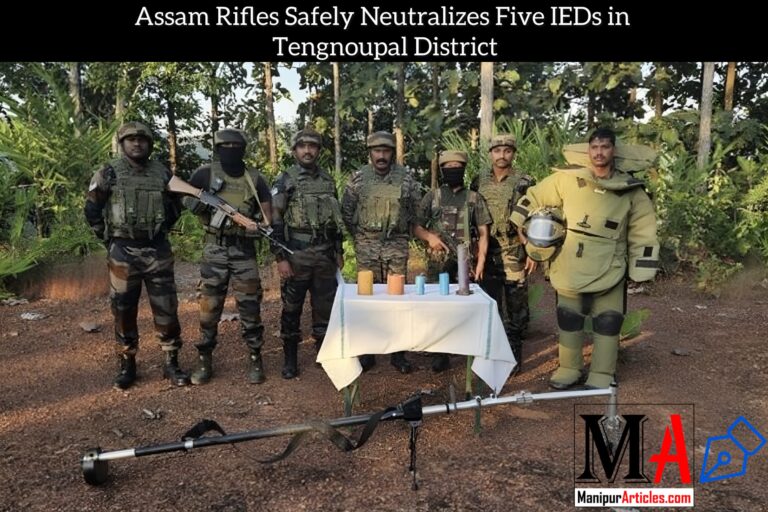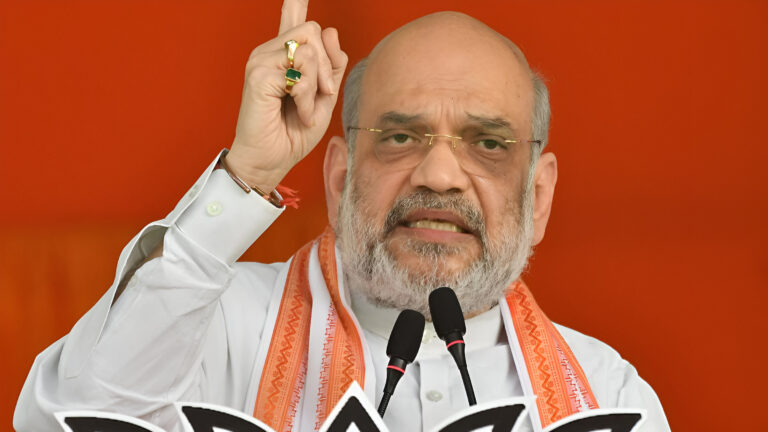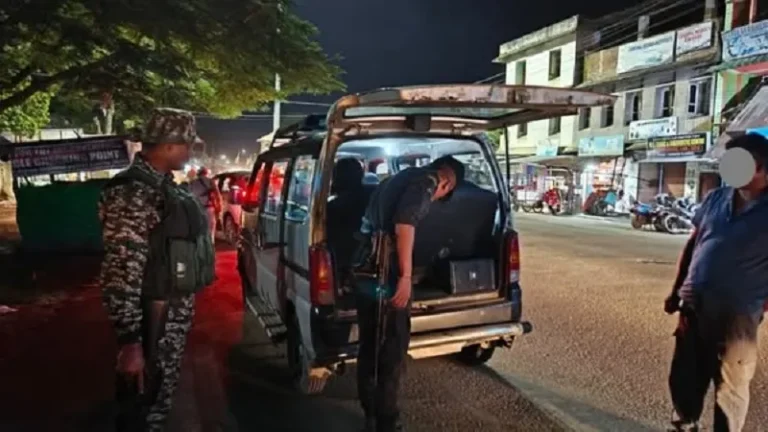Manipur Residents Believe BJP Failed to Form Ministry Due to Multiple Contenders: Party MLA Explains the Dynamics
Short Summary
In Manipur, residents are voicing their concerns over the BJP’s failure to form a ministry, attributing the setback to the presence of multiple internal contenders. A prominent party MLA has highlighted that internal factionalism and the emergence of several leadership aspirants have fragmented the party’s focus, leading to challenges in consolidating a unified government. This article delves into the intricate political dynamics at play, explores public sentiment, and discusses the broader implications of internal divisions within the party on governance and future electoral prospects.
Long Article:
Introduction: Unraveling the Political Puzzle in Manipur
Have you ever wondered how a political party, even one with a robust presence like the BJP, can stumble when it comes to forming a government? In Manipur, a fascinating yet concerning scenario has unfolded. Many residents believe that the BJP’s failure to form a ministry wasn’t due to external pressure or opposition from rival parties but rather because of multiple internal contenders jostling for power. As explained by a prominent party MLA, the very richness of opinions and leadership ambitions within the party has turned into a double-edged sword. In this article, we take a deep dive into the political dynamics that led to this predicament, explore the residents’ perspective, and discuss the broader implications for governance and future elections.
The Political Climate in Manipur: A Tapestry of Aspirations and Ambitions
Manipur’s political landscape is as vibrant and diverse as its cultural heritage. With numerous parties and influential figures, the state has always been a hotbed of political activity. However, the recent inability of the BJP to form a ministry has raised questions about internal party dynamics. Imagine a group of talented musicians who, despite their skills, can’t agree on a single tune. That discord, when played out on a large stage, can lead to an unharmonious performance. Similarly, the BJP in Manipur is now seen as a conglomerate of multiple power players, each with their own vision for leadership.
This internal tug-of-war has not only disrupted the formation of a stable ministry but has also led to speculation among residents. The prevailing belief is that instead of uniting under a common banner, the various contenders within the party have inadvertently fragmented the leadership. Such fragmentation can often leave voters disillusioned and pave the way for political uncertainty.
Residents’ Perspective: When Too Many Cooks Spoil the Broth
Let’s put it in simple terms—ever tried cooking a meal with too many chefs in the kitchen? Instead of creating a masterpiece, chaos ensues, and the final dish is compromised. Many Manipur residents feel the same way about the BJP’s current predicament. They argue that having multiple contenders within the party has led to a dilution of leadership and clarity, making it extremely difficult to forge a cohesive government.
The residents’ sentiment is clear: the abundance of ambitious leaders within the BJP has created a scenario where internal rivalries overshadow collective goals. This internal competition, while healthy in moderation, has reached a point where it is now detrimental. People are left questioning whether the party’s inability to form a ministry is a sign of deeper organizational issues or just a temporary setback caused by clashing egos.
The Role of Internal Factionalism: A Double-Edged Sword
Political parties, like any large organization, thrive on a balance between diverse opinions and unified leadership. Internal factionalism, when managed well, can foster innovation and robust debate. However, in the case of the BJP in Manipur, it seems that multiple contenders have tipped the scales too far. This internal strife can be compared to a sports team where every star player insists on being the captain. While each has their own strengths, the lack of a single, unifying leader can create confusion and undermine the team’s performance.
According to the party MLA, the very existence of several potential leaders has led to a situation where consensus is hard to come by. Instead of working together to form a ministry, the focus has shifted to individual ambitions. Such a scenario not only hampers decision-making but also signals to the public that the party is more concerned with internal power dynamics than with the welfare of the state.
Impact on Governance: When Leadership Crisis Affects Public Trust
At its core, government is meant to serve the people, providing stability, security, and progress. But what happens when the leaders themselves are embroiled in internal conflict? The inability to form a ministry due to internal contention can have far-reaching consequences. For starters, it creates a vacuum in leadership, potentially stalling critical policy decisions and delaying developmental projects. Imagine waiting for a traffic signal to change when the control room is in disarray—it creates chaos on the road.
For the residents of Manipur, this leadership crisis is not just a political inconvenience; it has tangible effects on governance and public trust. When a party fails to consolidate its leadership, it sends a message that internal discord might undermine effective governance. This perception can lead to voter apathy and even embolden opposition parties to capitalize on the perceived weakness. Moreover, prolonged internal conflicts can distract policymakers from addressing the pressing issues of the state, ranging from economic development to public health.
Comparison with Other Regions: Learning from the Global Stage
This isn’t the first time a political party has faced similar challenges due to internal contention. Across the world, history is replete with examples of parties that struggled to form governments due to internal rivalries. For instance, in several democracies, coalition governments have been formed after long standoffs, only to later face collapse due to inherent differences among the coalition partners.
By comparing Manipur’s situation with these instances, one can see that internal unity is often the cornerstone of political stability. In regions where a single, clear leadership is established, policy implementation tends to be smoother, and public confidence is higher. On the other hand, internal power struggles often lead to governmental paralysis and erode the very foundation of democratic accountability. This comparative analysis highlights a universal truth in politics: leadership unity is not just a desirable quality—it is essential for effective governance.
Why Internal Unity Matters: The Backbone of Effective Political Leadership
Let’s take a moment to reflect on why internal unity is so crucial for any political party. Think of a well-oiled machine—each component must work in harmony to produce a seamless outcome. In a political party, the leadership serves as the engine that drives policy, administration, and public trust. When that engine is fragmented by internal disputes, the entire system is at risk of stalling.
For the BJP in Manipur, the need for a single, unifying leadership is more pressing than ever. The residents’ frustration stems from a desire to see their leaders come together, set aside personal ambitions, and focus on the collective good. As the party navigates its internal dynamics, it must remember that the ultimate goal is to serve the people. A unified front not only streamlines decision-making but also reinforces public confidence in the government’s ability to handle challenges—be they economic, social, or security-related.
The Ripple Effect on Future Elections: Shaping Voter Sentiment
Political narratives have a way of shaping public opinion, especially during election cycles. The current internal strife within the BJP is likely to have significant repercussions for future elections in Manipur. Voters are quick to notice when a party appears divided or disorganized. This division can be exploited by rival parties, which may present themselves as the stable alternative.
In the upcoming elections, the perception of internal unity or its lack thereof will play a crucial role in voter sentiment. A party that successfully resolves its internal conflicts can rebrand itself as a cohesive force, ready to tackle the state’s challenges. Conversely, if internal disputes persist, it could lead to voter disillusionment and a shift in political allegiances. It’s like watching a sports team where the locker room is full of disagreements—the fans may lose faith in their champions and start rooting for the underdogs.
Public Reactions: Voices from the Ground
The streets of Manipur are abuzz with discussions about the BJP’s internal dynamics. Local residents, who are often the silent judges of political performance, have expressed mixed feelings about the situation. Some feel that the presence of multiple contenders is a sign of a healthy, democratic debate within the party. After all, a diversity of opinions can lead to better decision-making if harnessed correctly. Others, however, see it as a major flaw that is hampering effective governance.
One local shopkeeper remarked, “It’s like watching a family quarrel in public. Instead of coming together, everyone is busy fighting, and we, the common people, end up paying the price.” Such sentiments underscore the growing impatience among the populace for a clear and unified leadership that can deliver tangible results.
Internal Politics vs. Public Welfare: Striking the Right Balance
At the heart of this issue lies a delicate balance between internal political maneuvering and public welfare. While internal debates and the clash of ideas are natural in any vibrant political system, they should never overshadow the primary objective of governance—serving the public. When internal power struggles take center stage, the pressing needs of the community can easily be sidelined.
Public officials must remember that their actions have real-world consequences. Every minute spent embroiled in internal disputes is a minute lost in addressing issues like education, healthcare, infrastructure, and employment. It’s similar to a captain arguing with his crew while the ship drifts off course—the entire vessel, along with its passengers, suffers as a result. In Manipur, the stakes are high, and the cost of internal discord could be measured in missed opportunities for progress and development.
The Way Forward: Rebuilding Unity and Restoring Confidence
So, what can be done to resolve this internal impasse and set the BJP back on the path to effective governance in Manipur? The answer lies in introspection, dialogue, and decisive leadership. Here are some key recommendations that could pave the way for a unified approach:
- Facilitate Open Dialogue:
Party leaders need to create platforms for open and honest discussions. By addressing grievances and aligning on a shared vision, the internal factions can work towards a common goal. Think of it as gathering all the puzzle pieces and fitting them together to reveal the bigger picture. - Empower a Single Leader:
While diverse opinions are valuable, ultimately there must be one leader who can steer the ship. Empowering a single, well-respected figure to take charge can help consolidate the party’s efforts and restore public confidence. - Focus on Public Welfare:
Reaffirming the commitment to public service should be at the forefront of all internal debates. When every discussion is filtered through the lens of public welfare, personal ambitions take a backseat, paving the way for more unified decision-making. - Strengthen Organizational Structures:
Investing in robust organizational frameworks can help manage internal conflicts more effectively. With clear hierarchies and decision-making processes, the party can minimize the chances of disputes derailing its overall agenda. - Engage with the Community:
Continuous engagement with the residents of Manipur is key. By actively listening to their concerns and incorporating their feedback, the party can build a stronger bond with the electorate and showcase its commitment to serving the public.
Learning from the Past: Historical Lessons on Unity in Politics
History is replete with examples of political parties that have either flourished or floundered based on their internal unity. Looking back, one can draw valuable lessons from both successes and failures. For instance, parties that managed to overcome internal rivalries through compromise and shared vision often emerged stronger and more resilient. On the other hand, those that allowed factionalism to fester ended up fracturing, losing public trust, and eventually facing electoral setbacks.
In Manipur, the BJP now stands at a crossroads. The choice is clear: either find a way to harness the diverse energies within the party and channel them towards a unified goal, or risk repeating historical mistakes that have led to governmental paralysis. It’s a classic case of turning adversity into an opportunity for growth—a chance to rebuild stronger foundations and restore the faith of the people.
The Broader Implications for Manipur’s Future
Beyond the immediate political ramifications, the current internal conflict within the BJP has broader implications for Manipur’s future. A stable and unified government is not only essential for efficient policy-making but also for long-term economic and social development. When leadership is fragmented, the ripple effects can be felt across various sectors—from business and education to healthcare and infrastructure.
For the residents of Manipur, the hope is that their elected representatives will rise above internal differences and focus on the real issues that matter. The ongoing debate about multiple contenders is a reminder that political parties must constantly evolve, learn from their missteps, and work tirelessly to serve the public. In this regard, the current situation is both a challenge and an opportunity—a chance to reimagine leadership and build a governance model that is responsive, transparent, and inclusive.
Conclusion: Charting a New Course Amidst Internal Turbulence
To wrap things up, the belief among Manipur residents that the BJP’s failure to form a ministry is rooted in internal conflicts and multiple contenders is a reflection of deeper issues within the party’s organizational structure. The insights shared by the party MLA underscore the critical need for unity, decisive leadership, and a renewed focus on public welfare. Like a team that must rally together to win a championship, the BJP in Manipur must set aside internal rivalries and work towards a common goal if it is to regain public trust and ensure effective governance.
The road ahead may be challenging, but it also offers a unique opportunity for introspection and reform. By embracing open dialogue, empowering clear leadership, and always keeping the interests of the people at the forefront, the BJP can not only resolve its internal disputes but also emerge stronger in future elections. For the residents of Manipur, the hope is that this moment of crisis will serve as a catalyst for positive change—a turning point that leads to a more unified, efficient, and accountable government.
Frequently Asked Questions (FAQs)
1. What are the main reasons behind the BJP’s failure to form a ministry in Manipur?
A significant factor is the internal conflict within the party, where multiple contenders and factionalism have hindered the consolidation of a unified leadership, making it difficult to form an effective ministry.
2. How do residents of Manipur view the internal power struggle within the BJP?
Many residents feel that the presence of too many ambitious leaders has led to a lack of clear direction, ultimately compromising the party’s ability to govern efficiently and undermining public trust.
3. What impact does internal factionalism have on governance and policy-making in Manipur?
Internal factionalism can delay decision-making, create leadership vacuums, and divert focus from public welfare issues, all of which can hamper effective governance and slow down developmental progress.
4. Can internal disputes within a political party affect future elections?
Absolutely. Voters often lose confidence in a party that appears divided, and this perception of disunity can lead to electoral losses as opposition parties capitalize on the situation.
5. What steps can the BJP take to overcome these internal challenges and restore public trust?
The party can focus on facilitating open dialogue, empowering a single unifying leader, strengthening organizational structures, and prioritizing public welfare to ensure a cohesive and effective governance strategy.




